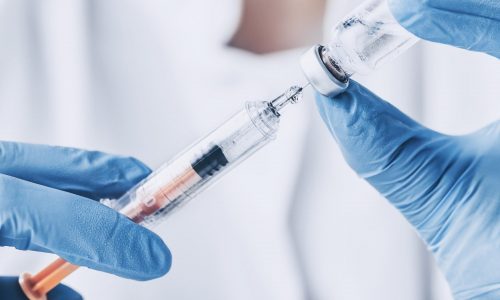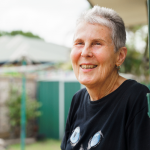Never in our history has there ever been such a mass vaccination program as the COVID-19 vaccination program. There is a mountain of information about vaccines out there and it is often confusing and complicated. Here we try to break down some of the basics on the COVID-19 vaccination and how it will affect people with MS. This article is designed to complement our more clinical advice around COVID-19 vaccination for people with MS, which you can read here.
What is vaccination?
Vaccination is the safest way, and sometimes, as in the case of COVID-19, the only way to protect yourself against some specific infections. Vaccination aims to train your immune system against a virus or bacteria that otherwise would cause disease if you were to encounter it. In other words, vaccinations give you immunity to those bugs.
How does vaccination work?
There are many different types of vaccines, but generally, they use a harmless form of the virus, or part of the virus to train the immune system without making you sick. The immune system remembers this bug, so if a vaccinated person encounters the virus later, the immune system already knows how to mount a suitable response.
Should someone with MS have the COVID-19 vaccination?
It is currently recommended that everyone over the age of 16 years should be vaccinated against COVID-19. There is no specific data relating to the administration of any of the vaccines to a person with MS, but studies in the US, EU and Australia are currently being conducted. However, there is no theoretical reason why any of the presently available vaccines should pose any particular risk to a person with MS. The chances of developing COVID-19 are genuine, and the risks may be higher in a person with MS who also has some disability or other health conditions.
The risks in contracting the disease far outweigh any conceivable risks from the vaccines. The current advice is that people living with MS should be vaccinated unless advised not to do so by their treating neurologist.
What are the different COVID-19 vaccinations?
The Australian Government has invested more than $3 billion to secure three potential COVID-19 vaccines if they all prove to be safe and effective. The vaccines are:
- 10 million doses of the Pfizer/BioNTech vaccine
- 53.8 million doses of the University of Oxford/AstraZeneca vaccine
- 51 million doses of the Novavax vaccine
The three vaccines are all slightly different, in both composition and how they show part of the coronavirus to the immune system. The Pfizer vaccine is what is called an mRNA virus. mRNA is short-lived genetic material found in all living things, like DNA. In this vaccine, the mRNA contains the instructions to make a segment of the SARS-CoV-2 virus spike protein. Once injected, our body then uses the mRNA instructions to trigger a response.
The AstraZeneca/Oxford vaccine uses a different technique to introduce the virus into the body, called a viral vector. A viral vector is a modified virus unable to replicate in the body. In this case, it is an adenovirus (generally associated with a cold).
The Novavax vaccine is different again; this vaccine uses part of the virus protein together with an “adjuvant” a chemical that stimulates the body’s immune system into action. For more detailed information about each of the different vaccines go to our website.
Where do people with MS fit into the vaccine rollout?
The Australian government has announced that vaccinations are planned to commence at the end of February 2021 and have created a rollout plan for the vaccine depending on the level of risk of contracting the disease.
The first group of people to be vaccinated consists of border and quarantine staff, frontline medical staff, and aged care workers and residents (approximately 678,000 people). The second group contains people with underlying medical conditions, which is made up of around 2 million people. It is likely that people with MS will fit in the second group for vaccinations.
Initially, the first rounds of vaccines will be made available in a small number of locations, gradually building to around 50 hospital hubs in urban and rural areas around Australia as experience is gained and logistics are organised. Therefore, it is likely that people with MS will need to go to one of these centres to be vaccinated. The location of these centres will be decided by state and territory governments. Later waves are likely to be carried at GPs and other local healthcare clinics and possibly community pharmacies.
What is Herd Immunity?
Herd immunity is the idea that if a large enough percentage of the population is vaccinated, it is difficult for the virus to find an unvaccinated person to infect and spread. Not only does this limit the spread of infection but it also limits the chance of the virus mutating or changing. Herd immunity is also essential in protecting people who can’t be vaccinated themselves for various reasons, such as age or immunological diseases. It is currently unknown exactly what percentage of the population needs to be vaccinated to produce herd immunity, but experts believe it to be around 75%.
How effective are the different vaccines?
Like any medical intervention, no medicine is 100% effective, but vaccines are the most effective way of preventing COVID-19, especially severe COVID-19. There are variations in people’s immune systems, there are variations in the virus caused by mutations, and there are variations in the vaccines themselves. Vaccine “efficacy” is indicated by the percentage reduction of disease in a vaccinated group of people compared to an unvaccinated group.
Among the COVID-19 vaccine candidates, there have been different efficacies reported. This is varied and depends on the vaccine, the study, and the population they are being used in. But generally, they are all considered to have a significant impact on the virus responsible for COVID-19.
Previously, diseases such as smallpox and polio have been eradicated from Australia by effective vaccination strategies, and without any other options COVID-19, vaccination is the only line of defence we have. Vaccination protects yourself and the community around you. If you have any concerns about vaccination, it is essential to talk to your healthcare team.






